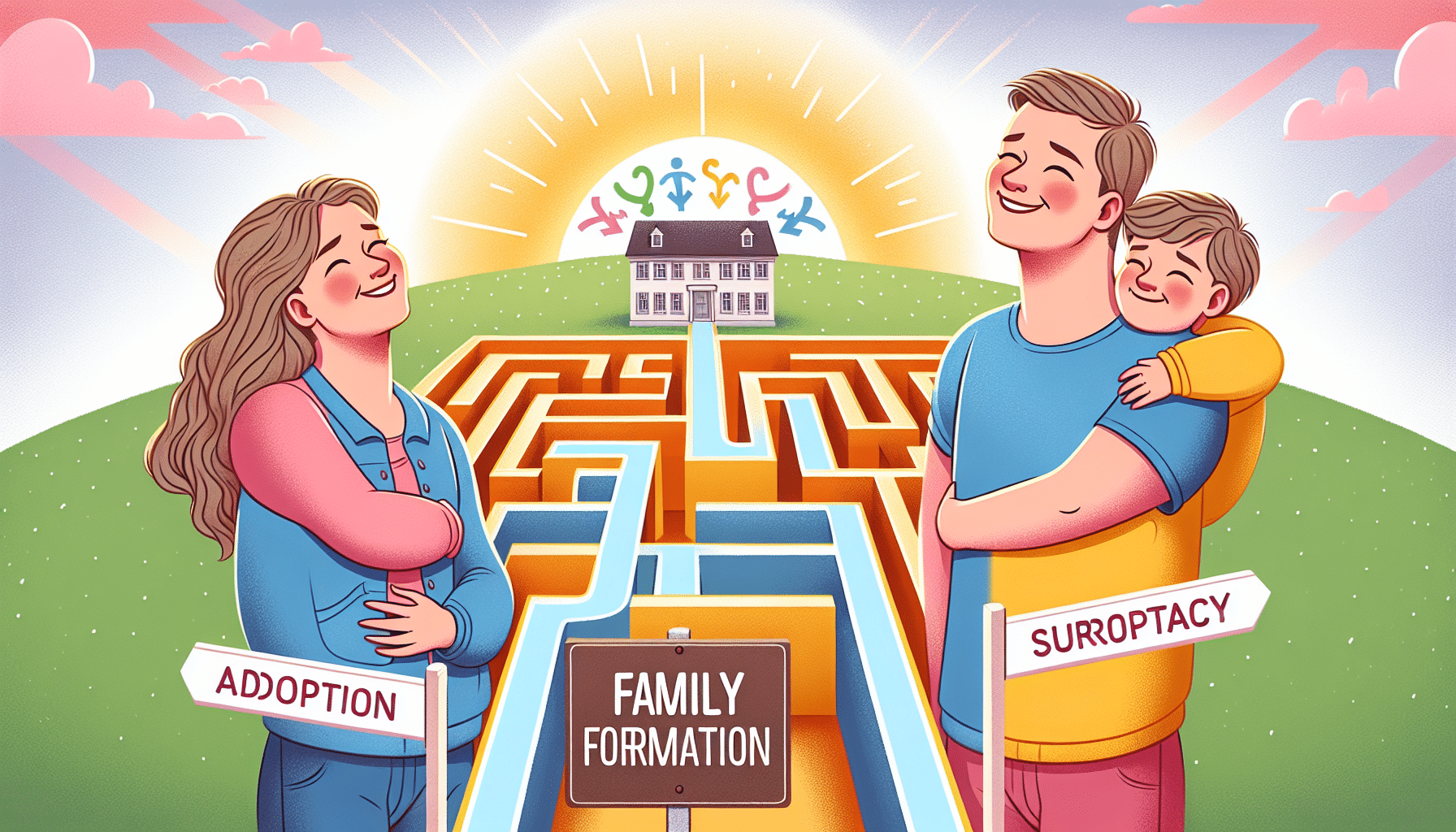LGBTQ+ Family Formation: Navigating Surrogacy and Adoption Laws
LGBTQ+ Family Formation: Navigating Surrogacy and Adoption Laws
The LGBTQ+ community has come a long way in terms of achieving legal recognition and protection. However, when it comes to family planning, there are still many challenges faced by same-sex couples and individuals. Surrogacy and adoption are two common options for LGBTQ+ individuals or couples who wish to become parents. However, navigating the legal landscape surrounding these options can be complicated and overwhelming. In this article, we will delve into the laws and regulations surrounding surrogacy and adoption for LGBTQ+ families and provide guidance on how to navigate them.
Understanding Surrogacy Laws for LGBTQ+ Families
Surrogacy is the process in which a woman carries and gives birth to a baby for another person or couple. In the case of LGBTQ+ families, surrogacy allows same-sex couples or individuals to have a genetically related child through the use of assisted reproductive technology (ART).
Depending on the state or country, surrogacy laws can vary greatly for LGBTQ+ families. In some places, same-sex couples may face barriers when it comes to accessing surrogacy, while in others, there may be specific laws that protect their rights. For example, in the United States, some states have laws that allow same-sex couples to be named as the legal parents of a child born through surrogacy, while others may require additional legal steps to establish parental rights.
It is crucial for LGBTQ+ families considering surrogacy to consult with an experienced attorney who is well-versed in the specific laws and regulations of their state or country. An attorney can guide them through the legal process and help ensure that their rights are protected.
Adoption Laws for LGBTQ+ Families
Adoption is another popular option for individuals and couples in the LGBTQ+ community looking to expand their family. However, just like with surrogacy, the laws surrounding adoption can differ depending on where you live.
In the United States, same-sex couples have the legal right to adopt in every state, thanks to the Supreme Court’s ruling in 2015 that legalized same-sex marriage. However, some states may still have regulations and laws that make it more difficult for LGBTQ+ individuals or couples to adopt.
For example, some states may have religious exemption laws that allow adoption agencies to discriminate against LGBTQ+ individuals based on their religious beliefs. This means that LGBTQ+ couples may not be able to adopt through certain agencies in those states. It is essential for LGBTQ+ families to do their research and find adoption agencies that are welcoming and inclusive towards the community.
Navigating the Legal Landscape for LGBTQ+ Families
Despite the progress made in LGBTQ+ rights, there are still many legal hurdles that same-sex couples or individuals have to navigate when it comes to family formation. These challenges highlight the importance of hiring a knowledgeable attorney who can guide you through the process and ensure that your rights are protected.
It is also crucial for LGBTQ+ families to educate themselves on the specific laws and regulations in their state or country before embarking on their journey towards parenthood. This includes understanding the adoption and surrogacy laws, as well as any potential challenges they may face along the way.
In Conclusion
LGBTQ+ family formation through surrogacy and adoption can be a rewarding and fulfilling experience. However, it is essential to approach it with the right knowledge and guidance to ensure a smooth and legally protected process. By understanding the laws and regulations surrounding surrogacy and adoption for LGBTQ+ families, individuals and couples can take the necessary steps to protect their rights and successfully build their family.










